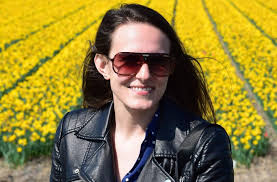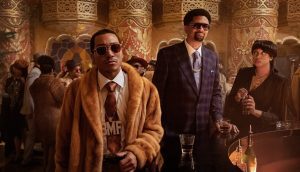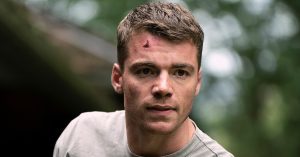Joy, Uganda Ranger: “We should be more like gorillas” – Biodiversity

Lara Malefisi
Joy Tugum, the sole ranger responsible for the last family of gorillas released in Uganda’s Magahinga National Park, defends the primate’s “values” and advocates the imitation of these animals, which she asserts are a “better version” of humans.
“We have to be more like gorillas,” he emphasized in an interview with EFE on the occasion of the screening in Barcelona of the documentary “Joy,” directed and co-produced by Aner Etxerbarria and Katz Studio, which spurred the first trip outside his jungle ranger.
Tugume works surrounded by male guards, explaining that although her peers tend to treat her with “paternal” and “condescending”, she can do “exactly the same job”.
In fact, his greatest relationship is with the gorilla family that lives on the mountain where he works as a ranger.
Naturally, the first meeting with Rokundo, the largest specimen with a height of more than two meters and a weight of about 200 kilograms, left her in shock.
“Caught my breath,” admits Togum, who admits, however, that this silver-backed gorilla is now his “favorite.”
The Ugandan advocate explains in the documentary and in interviews that she sees no differences between gorillas and humans: “His look is like an old man’s.”
He continues: “I feel, the truth is, that I work with other people. They have understanding. I make myself understood and we connect. They already know me and if they fight and see me reach, they stop fighting because I feel protected.”
Furthermore, it highlights the values of primates and their ability to care for each other and live together.
“I feel a great connection with them,” says the 31-year-old Ranger, who talks to her 2- to 4-year-old primate children as part of her “family.”
He explains his desire to pass on to them the value of nature conservation and the coexistence of species: “I want them to be forest rangers when they grow up. This will be my legacy to them.”
Since she is a mother, she is also moved to see the “similarities” in upbringing between humans and gorillas and the protection given between different generations, a generation that does not see this clearly in humans.
“Gorillas are like an earlier version of humans, and yet they are a better version,” says The Guardian, who remembers that we share 97.8% of our genes with primates.
Joy Tugume stresses the importance and “commitment” to the Mgahinga gorilla, which she recalls is 9 of the last 1,000 remaining in the world still living in the wild.
He warns that poachers threaten their survival, but also the local population themselves who, in search of food for the animals, set traps for antelopes in the mountains.
“The traps don’t get the prey caught, and we’ve also had to regret some cases of gorilla deaths. We’re working with local people to prevent gorillas from being inadvertently caught,” he explains.
Although she is “fascinated” by what she sees in Spain, having traveled to cities such as Barcelona and Bilbao, she says she wants to go home.
In his bag he carries brochures from his natural garden in Uganda, which he hands out to people he meets on his journey to present the documentary.
Far from wanting to scare away tourists, he’s clear that visitors can have a positive impact on the development of conservation spaces, though, yes, defending his “family” of gorillas, he wants to keep them away from the cameras and safaris of aliens. .

“Professional problem solver. Subtly charming bacon buff. Gamer. Avid alcohol nerd. Music trailblazer.”




:quality(75)/cloudfront-us-east-1.images.arcpublishing.com/elcomercio/6NEH6FMKYBCU7JJWZ5GVRZKTRM.jpg)
/thumbs.vodgc.net/1-14-FnXFWZ1684253239488_1080P.jpg)



